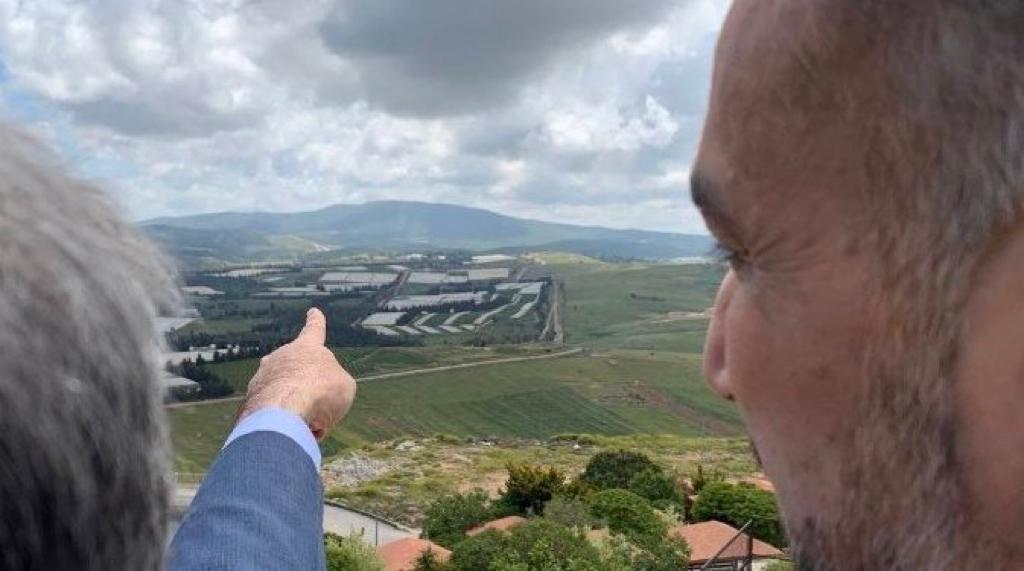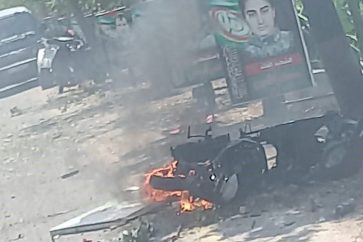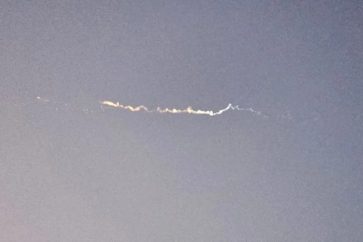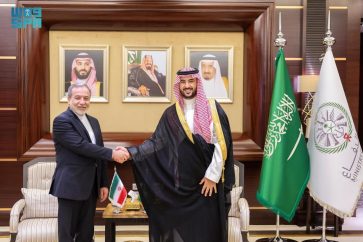In the wake of the rapidly evolving situation following the Al-Aqsa Flood Battle, Iran has assumed a crucial role in garnering support for the besieged residents of Gaza in their resistance against Israeli military actions.
The President of Iran, Ebrahim Raeisi, along with various ministers and officials, have been actively engaged in supporting the Palestinian cause.
In a recent phone call with French President Emmanuel Macron, President Raeisi has strongly criticized the Israeli actions against Palestinians, drawing parallels with the atrocities committed by the Nazis during World War II. He has also issued a warning, suggesting that the dimensions of the conflict could escalate further if the Israeli regime continues its attacks.

Raeisi emphasized the responsibility of Western countries and international organizations in addressing the ongoing Israeli crimes against Palestinians in Gaza.
He stressed the immediate need to halt the bombardment of residential areas in Gaza, lift the blockade, and ensure the provision of essential supplies such as water, electricity, fuel, and basic necessities to the besieged population. Raeisi firmly condemned Israel’s criminal attacks, expressing deep concern for the people of Gaza who have endured decades of oppression, discrimination, injustice, and occupation of their territories.
Raeisi emphasized that these measures are crucial to prevent the crisis from further destabilizing the region. He also criticized the Israeli regime for repeatedly violating international rules and conventions, citing the blockade, cutoff of essential supplies, extensive and indiscriminate bombardment of civilian targets, and the use of phosphorus bombs as examples of war crimes.
The President called for an immediate end to the bombing of residential areas in Gaza and expressed his belief that both Palestinian resistance groups and free nations worldwide would stand against these atrocities. Raeisi further criticized the Western media for their incomplete and inaccurate narratives regarding the plight of Gaza’s people, and he called for increased pressure on Israel to cease its crimes and lift the blockade.
For his part, Iran’s Foreign Minister, Hossein Amir Abdollahian, has also been actively engaged in discussions about the latest developments in Palestine.
In a telephone call with his Chinese counterpart Wang Yi, today, Sunday, Abdollahian stressed the urgency of halting the Israeli aggression against civilians in Gaza, emphasizing the dangerous and volatile nature of the situation.

Abdollahian called on the United Nations Security Council to take immediate measures to secure peace in the region and urged China to use its influence to stop Zionist attacks against Gaza.
Furthermore, Abdollahian issued a warning that Iran would not stand idly by if Israel persisted with its brutal actions against the people of Gaza. He expressed hope in political efforts to resolve the conflict but cautioned that Iran would not remain passive if the Israeli regime continued its onslaught on Gazans. He also highlighted the readiness of the resistance front for all possible scenarios.
The Iranian Foreign Minister also called on China to “use its capabilities to stop the Zionist attacks against civilians in Gaza.”
The Chinese Foreign Minister had confirmed in a phone call with the Saudi Foreign Minister, Faisal bin Farhan, on Sunday, that “the historical injustice against Palestine cannot continue.” The Chinese Foreign Ministry quoted its minister as saying that Beijing is “currently working closely with all parties to strengthen the ceasefire and end the war.”
Moreover, Abdollahian, in an interview with the Qatar-based Al Jazeera network’s Arabic service on Sunday, has warned that the Islamic Republic will not be a bystander if the Israeli occupying regime presses ahead with its savagery against the Palestinian people in the besieged Gaza Strip.
“If the Zionist entity decides to enter Gaza, the resistance leaders will turn it into a cemetery for its soldiers,” Amir-Abdollahian said, adding that the continuation of Israeli aggression against Gaza would expand the war fronts across the whole region. “If the scope of the war expands, heavy losses will befall the US as well,” he said.
Amid the escalating violence, more than 2,450 people have lost their lives, and around 10,000 have been injured during nearly eight days of Israeli attacks on Gaza. These attacks were triggered by the Gaza-based Palestinian resistance movement, Hamas, in retaliation for months of violence caused by Israeli settlers and military forces.
As a response to the crisis, the Organization of Islamic Cooperation (OIC) is convening an urgent meeting, and Iran has been invited to actively participate. Amir-Abdollahian announced upon ending an official visit to Qatar that Iran had been invited to attend OIC’s meeting which is planned for October 18 in Jeddah, Saudi Arabia. “The Islamic Republic of Iran has been invited to the extraordinary meeting of the OIC and we will actively attend this session,” said the minister.
The conflict has taken a heavy toll on Gaza, a densely populated enclave of 2.3 million people, where essential resources such as fuel, electricity, water, and food have become increasingly scarce. It remains to be seen how the international community will respond to the ongoing crisis and work towards a peaceful resolution.
Source: Al-Manar English Website




